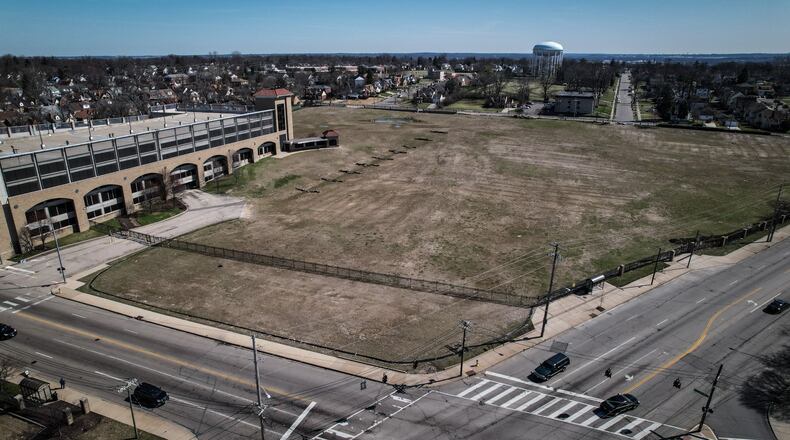“After completing its thorough investigations into this matter, OCR did not find sufficient evidence to prove that Premier violated either Title VI or Section 1557 as alleged under the Complainant’s complaint,” the letter says. “Accordingly, OCR has closed the complaint ...”
The letter says that a complaint was filed with the Office for Civil Rights by Advocates for Basic Legal Equality on behalf of the Clergy Community Coalition against Premier Health Partners. The group of clergy, organized as the Community Clergy Coalition, filed the complaint claiming the decision to close the hospital on Salem Avenue would have a discriminatory and adverse effect on Black residents served by the hospital.
“The Complainant alleged that Premier’s closure of Good Samaritan Hospital and expansion in suburban and rural areas adversely and disparately impacted African Americans and women in violation of Title VI of the Civil Rights Act of 1964 ...” the letter says.
Good Samaritan was the closest hospital for 38,600 people in the area — 75 percent African American — and the two census tracks most aligned with the hospital are 85 percent African American.
Premier Health previously said its expansion efforts are focused on areas of population growth and on adding outpatient services, which are in more demand than inpatient services.
Last year, Premier Health announced a plan to build a 12,000-square-foot health medical center on the site where the much larger hospital was. The center will have an urgent care center, physician offices, physical therapy, lab services and medical imaging.
“Plans to redevelop the former Good Samaritan Hospital campus in partnership with others continue to move forward and gain momentum,” a Premier Health spokesperson said in a statement Monday. “We will do our part to make the vision for the Northwest Health and Wellness Center a reality on this site. And we will continue to collaborate with organizations in northwest Dayton and throughout the region to find new ways to fulfill our mission in all communities that we serve. We are grateful for the federal government’s decision on this matter.”
The letter from Health and Human Services says that Premier was notified about the complaint in July 2018 and responded days later. It says that Premier provided additional responses in 2018, 2019 and 2020, with HHS’ Office for Civil Rights taking a key role.
“After the complaint was filed, OCR referred the parties to mediation. When these efforts did not result in a resolution, OCR conducted an investigation,” the letter says. “OCR thoroughly reviewed all of the information provided by both parties, including the complaint, additional documentation, and the supplemental material provided by the Complainant, as well as Premier’s responses, supporting documentation, and policies and procedures.
“OCR also made onsite visits and interviewed over 100 witnesses, including community residents and senior leaders of Good Samaritan Hospital and Premier,” the letter says. “Based on its review of the complaint, interviews, and evidence submitted by both parties, OCR did not find a violation of Title VI or Section 1557.”
The Rev. M. Merritt Worthen, president of Clergy Community Coalition, said the coalition is outraged by the findings.
“We are exploring further legal options,” Worthen said. “Premier’s closure and demolition of Good Samaritan Hospital and their intentional abandonment and divestment from the underserved Black community of northwest Dayton, while expanding and building aggressively in affluent white suburban areas is an injustice that calls out for a fair and adequate resolution.
“Premier has chosen profits over people,” Worthen continued. “This decision still leaves this community with inadequate healthcare, i.e., limited emergency or trauma services, high infant mortality (meaning no babies can be born safely on the northwest side), virtually non-existent mental health services, lack of affordable healthcare with insurances that are not accepted, and limited transportation access.”
Worthen said those are critical “life and death services” being denied to the minority community.
“We are not done fighting for healthcare equity and access at the same levels that are offered in other areas of the Dayton region,” she said.
Good Samaritan timeline
1928: The community and Sisters of Charity lead $1 million fundraiser to build the new hospital.
1932: Good Samaritan is dedicated.
1995: Good Samaritan North Health Center opened, which was largest freestanding outpatient facility in U.S.
1995: Good Samaritan joined with Miami Valley Hospital to form Premier Health.
2003: Samaritan Pavillion opened at the main campus, with an ER, ICU and more surgical suites.
2009: Good Samaritan and Dayton Heart and Vascular Hospital (Dayton Heart Hospital) joined to form Dayton Heart & Vascular Hospital at Good Samaritan.
2015: A 96,000 addition was built at Good Samaritan North.
Jan. 17, 2018: Premier Health announces Good Samaritan will close.
May 3, 2018: Civil rights complaint filed over Good Samaritan closing.
July 23, 2018: Good Samaritan officially closes.
2021: Premier Health announces a plan to build a 12,000-square-foot health medical center on the site
About the Author

